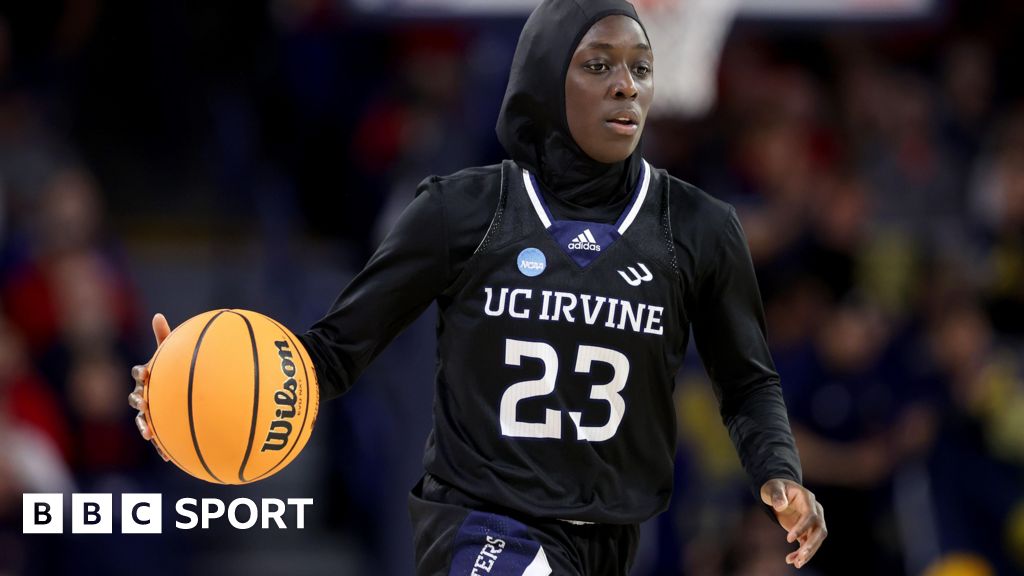Over the three years since France’s controversial “Islamist separatism” law was passed, it has gradually permeated aspects of French society, including competitive sports.
The rule applies not only to players but also to coaches and referees – officially excluding anyone wearing a sports hijab from the competitive space altogether.
This has been the case for years at all levels under the French Football Federation (FFF), despite Fifa lifting its religious headgear global ban a decade ago. Basketball’s world governing body Fiba also lifted its ban in 2017.
Both international rule changes were a breakthrough after years of campaigning led by Muslim sportswomen.
But as the Paris Olympics make history as the first to achieve numerical gender parity on the field of play, Muslim French women and girls continue to face barriers on their home turf – which campaigners like Amnesty International say is a “violation of their human rights” with a “devastating impact”.
“It’s a catastrophe for French sport – for women’s sport,” says Helene Ba, who after experiencing a similarly traumatic experience to Sylla at grassroots level co-founded Basket Pour Toutes (Basketball For All).
It is a collective dedicated to tackling discrimination in basketball through activism and events.
“I don’t necessarily agree with the word ‘choice’,” Ba says, considering the situation facing Muslim female players.
“It makes it seem like it’s equitable or fair, which it isn’t. They don’t want us to choose, they just want us to forget about our identity and convictions, so it didn’t feel like a choice.
“I will never compromise my beliefs or my values, especially because I know that this is an unfair rule.”
In September last year, the French sports minister Amelie Oudea-Castera confirmed that the hijab was banned for all the French team at the Olympics, under France’s principles of secularism – laicite. The ruling was criticised by the UN human rights office and the International Olympic Committee subsequently confirmed that hijabs were allowed inside the athletes’ village.
In April, Paris 2024 chief Tony Estanguet told BBC Sports Editor Dan Roan that it was “up to the countries, the delegations and the National Olympic Committees to decide for the athletes – if they want other rules in place or not” maintaining there is “nothing illegal by the French delegation – it’s their decision”.
Most often translated as secularism in English, laicite does not stipulate that France’s people should drop any religious customs or symbols, but, instead, that state and public institutions should be expressly free of them.
This concept – central to France’s identity – stems from the law of 1905, which sealed the separation of the church and state. But human rights groups have criticised the manner in which it is being interpreted for the France of today.
Ba, who also specialises in human rights and humanitarian law, says that laicite is “highly misunderstood” and “does not prevail over human rights”.
“It’s been instrumentalised to erase all differences and more specifically the Muslim identity – especially women who wear the hijab,” Ba says.
“Some of us are becoming activists because of this rule, but what I also want to emphasise is most of us are left without anything – especially younger Muslim women because they don’t know why they’re being excluded. They don’t have any other alternative so some of them just stop playing sport altogether.
“Once a rule targets a minority group and creates discrimination and infringes on people’s rights, it should be everyone’s concern. And so today it’s us – but tomorrow it may be you.
“We grew up without any role models and we will never have – if these rules stay in place – a French hijabi athlete representing the national team.”

